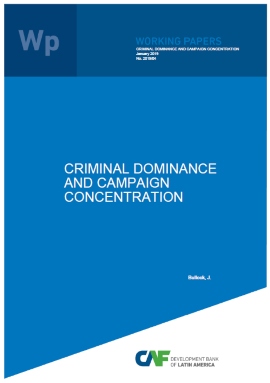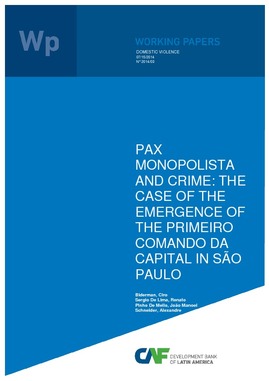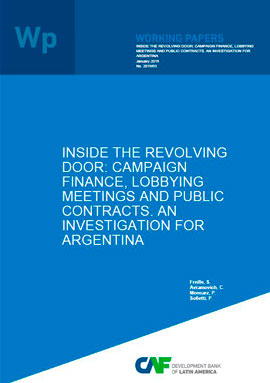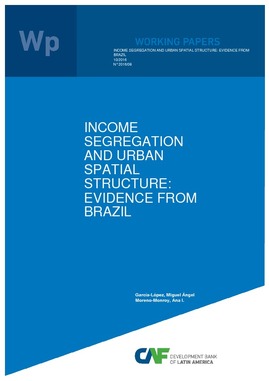Criminal Dominance and Campaign Concentration
Resumen
There are many journalistic and anecdotal accounts about the prevalence of electoral corrals in Brazil, geographic areas where brokers, politicians, or community leaders influence residents to vote for a specific candidate. In this paper, I investigate one particular type of suspected electoral corral: the favela, urban slum. This analysis focuses on the 1000+ favelas in the city of Rio de Janeiro, Brazil. I explore whether or not vote share is indeed more concentrated in urban slums, and then whether or not vote concentration is related to criminal dominance. I contend that politicians in Rio de Janeiro have incentives to work with criminal groups in order to get more votes, and that finding a way to access these electoral corrals may be an election-winning strategy. Using novel, geospatial data and introducing a new text dataset on criminal dominance in Rio de Janeiro, I show that vote concentration is indeed more concentrated in urban slums and, within these slums, even more concentrated in slums that have steady criminal dominance from one election to the next.
Materia
País / Región
Fecha
2019-01-1Citar de esta publicación
Item perteneciente a la Colección
Autor
Bullock, J.Items Relacionados
Pax Monopolista and Crime: The Case of the Emergence of the Primeiro Comando da Capital in São Paulo
This paper documents a rare phenomenon: the consequence of the dominance of a single criminal gang in the city of São Paulo, the Primeiro Comando da ...
Inside the revolving door: campaign finance, lobbying meetings and public contracts. An investigation for Argentina
This paper explores the relationship between political influence activities by interest groups and benefits obtained in the form of public contracts. ...
Income Segregation and Urban Spatial Structure: Evidence from Brazil
We estimate the effect of urban spatial structure on income segregation in Brazilian cities between 2000 and 2010. Our results show that, first, local ...





